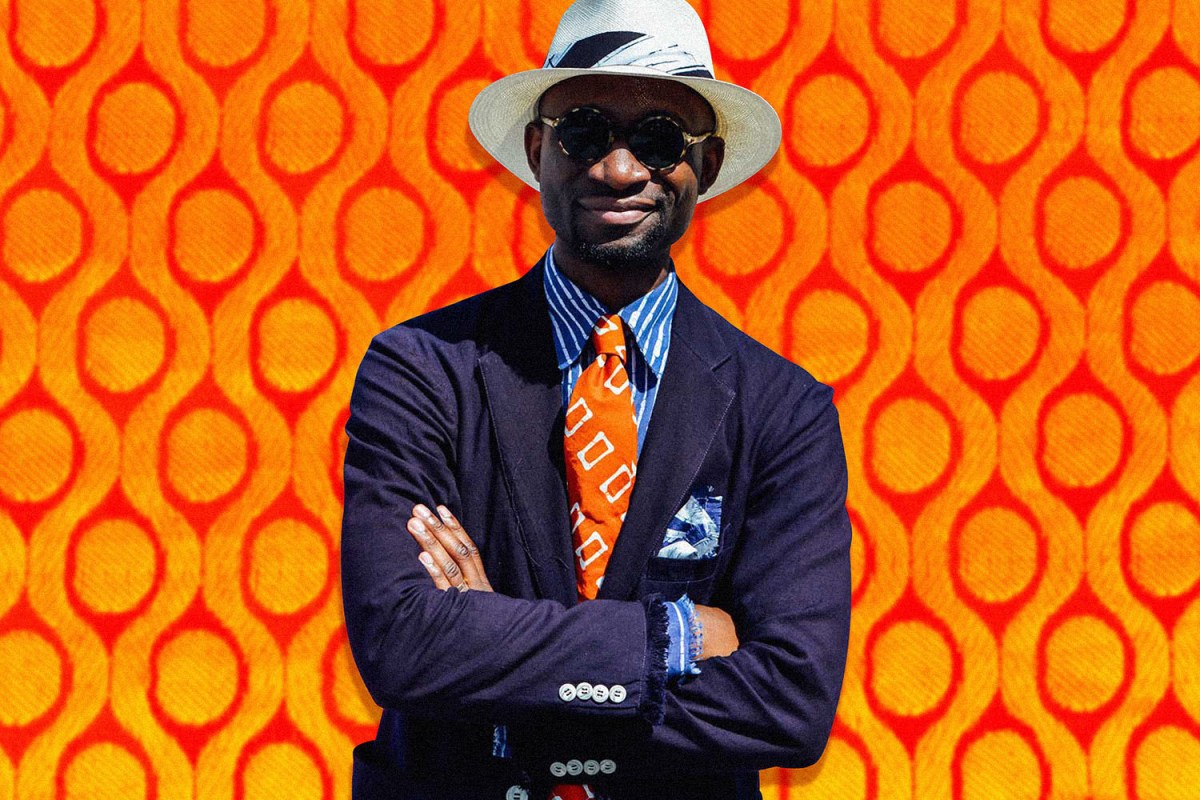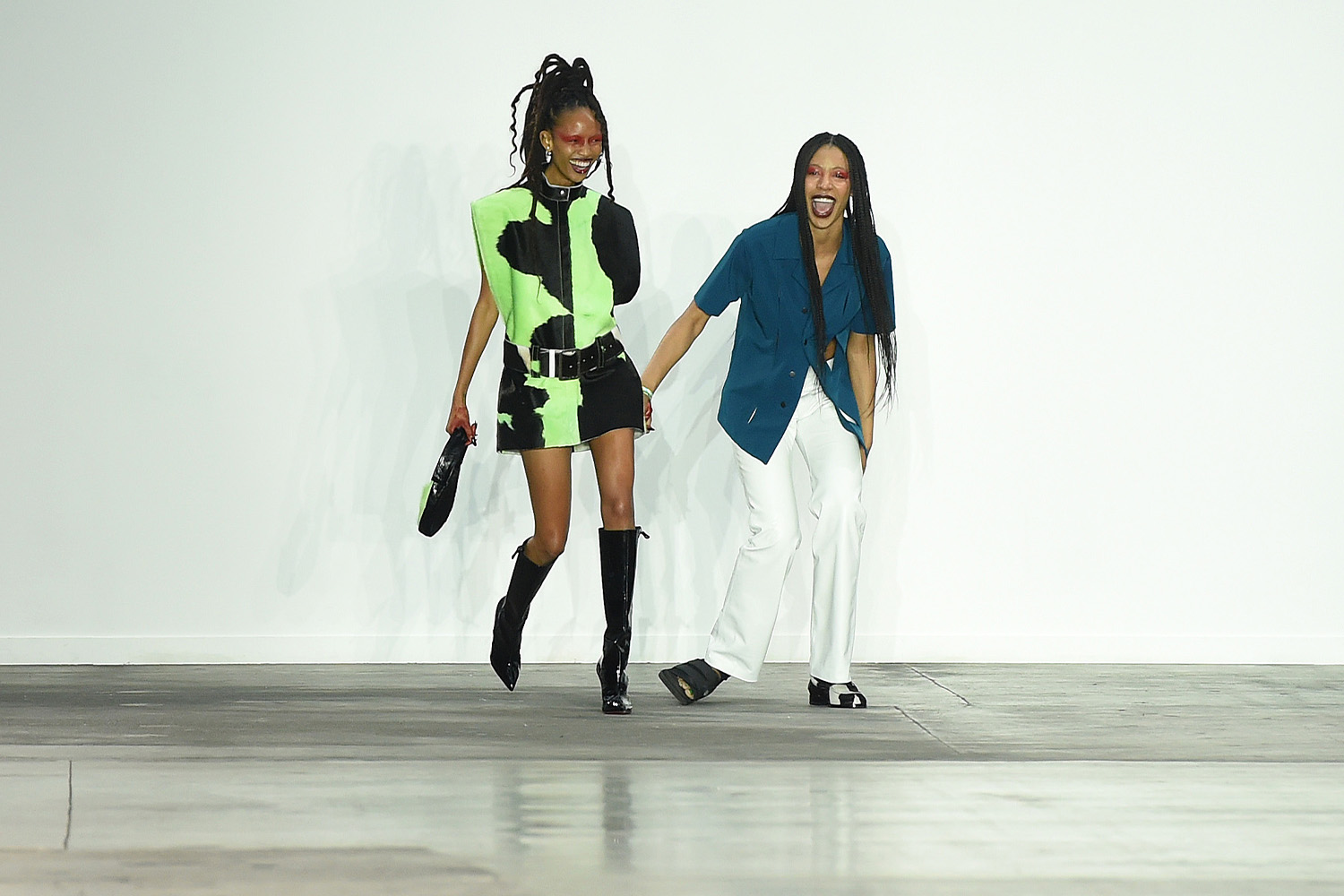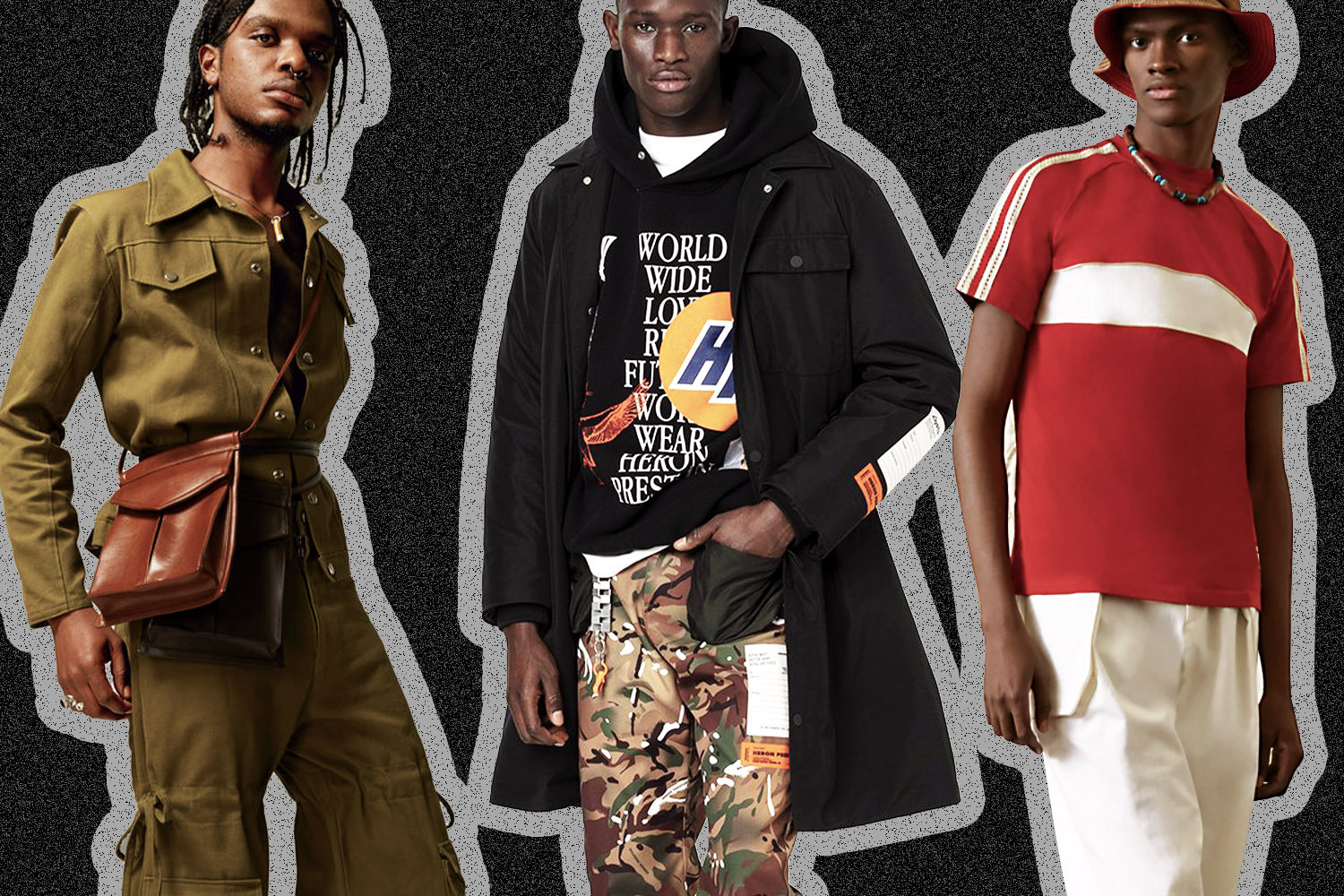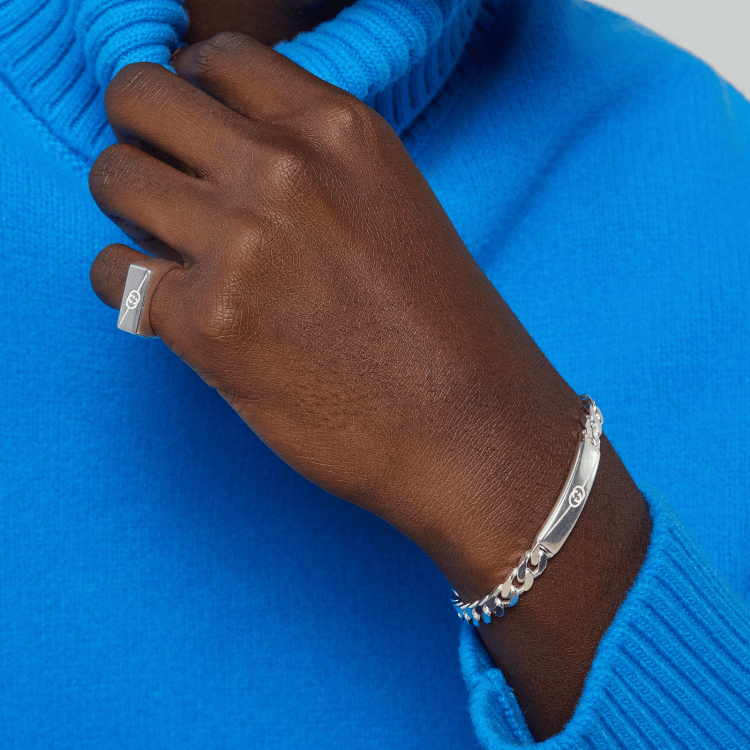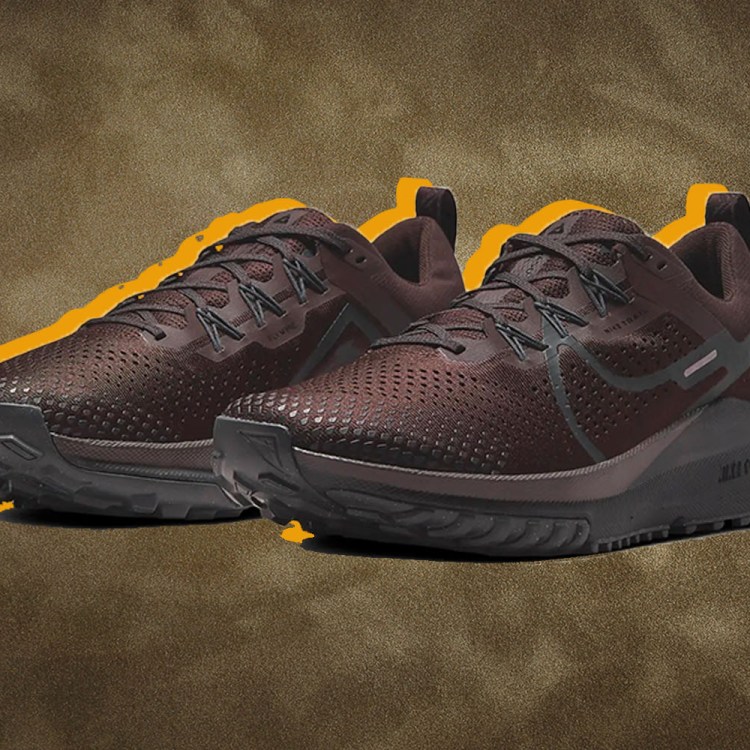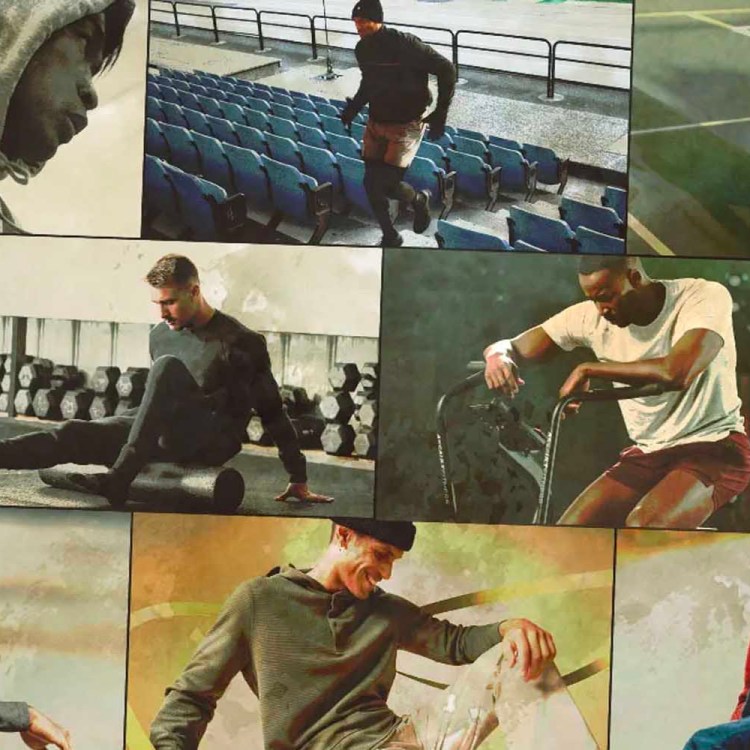For those of us interested in fashion, the past few weeks have seen inboxes full of luxury brands assuring us that Black Lives Matter, a sentiment that is somehow both welcome and slightly absurd coming from corporations that sell us expensive clothing. Do their statements on racial justice make a difference? Should we really care what they have to say in the face of a great societal reckoning? Do the companies really care about anything other than public perception and how it impacts their bottom line?
One would be forgiven for cynicism: fashion can be a stupefyingly tone-deaf culture, its own opaque bubble, blind to the exploitation of people and resources required to feed our lust for chic living. Why should we care what a designer thinks?
One might also be pleasantly surprised to learn that there are designers like Niyi Okuboyejo, founder of Post-Imperial, who not only has serious thoughts on social and political matters, but has managed to integrate his intellectual ideas into the clothing he produces from the very inception of his brand — almost miraculously without pretense, condescension or preaching. He is a designer who has faith that his customers are intelligent enough to engage with complicated ideas expressed aesthetically.
“I am trying,” he tells InsideHook, “to decolonize myself.”
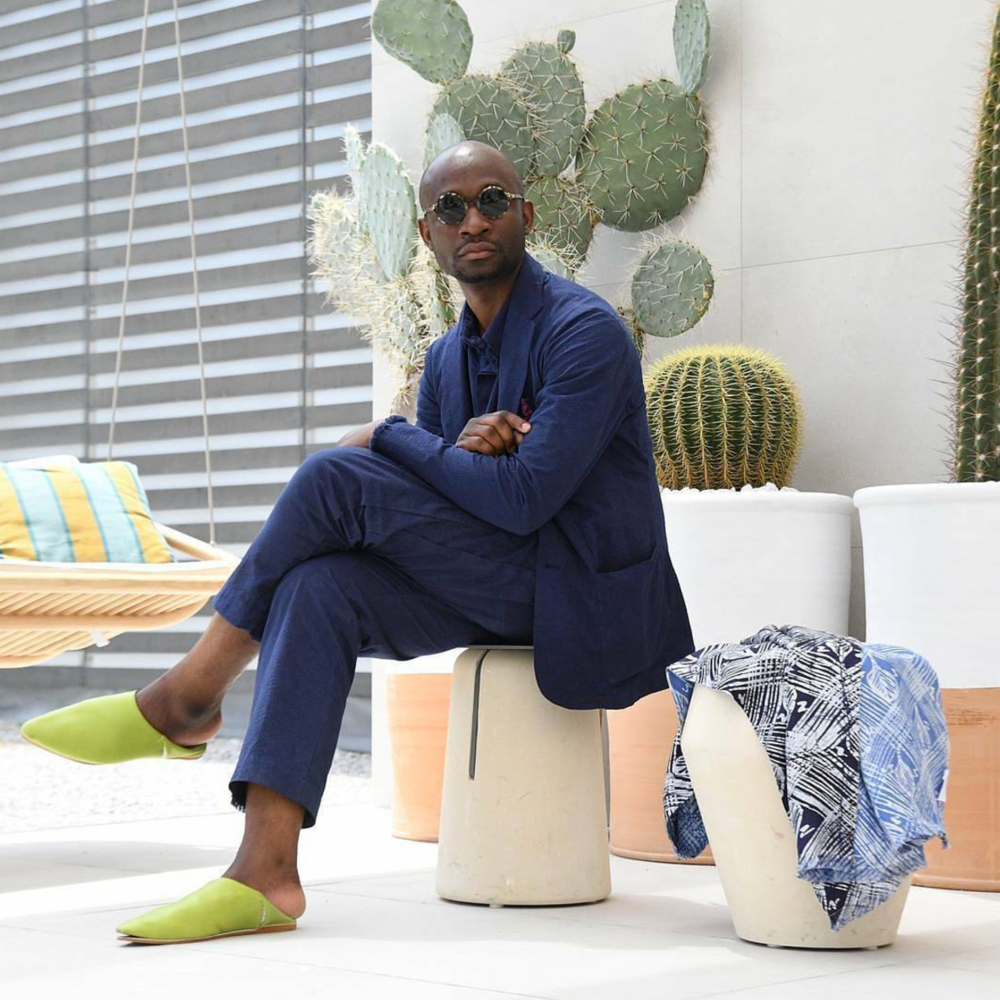
Born in Nigeria, Niyi moved to Houston at 14. His interest in fashion was piqued when a high-school assignment to write about a famous person led him to discover YSL’s iconic 1966 “Le Smoking” collection and the accompanying Helmut Newton photographs. He moved to New York and attended Parsons’ School of Design to study womenswear. After graduation, he shifted into menswear after several job recruiters suggested that he had a unique talent for it. But launching a full menswear collection in New York was too expensive.
“I decided the smart thing was to do accessories,” he recalls, “but everyone was taking the same route and doing the Ralph Lauren plan, which is to start with ties. I thought ‘If everyone’s doing ties, what makes me stand out?’”
So he reached back into his Nigerian heritage, using cottons dyed with the adire wax resist dye technique. His early collections — ties and pocket squares in richly-colored adire prints with fringed edges — were like nothing New York boutiques had ever seen. Soon, he had branched out into shirts, trousers, jackets and more.
One of the keys to Post-Imperial’s success is that Niyi doesn’t simply source ready-made Nigerian fabric and manufacture clothing with it. He works with the dyers themselves in a collaborative process, having given them respect for their craft and in turn earning their trust. Many traditional adire prints have symbolic meanings, and they are often presented — comic strip-like — in sequential panels.
“If you understand all of these teeny symbols, you can actually read it like hieroglyphics,” Niyi explains.
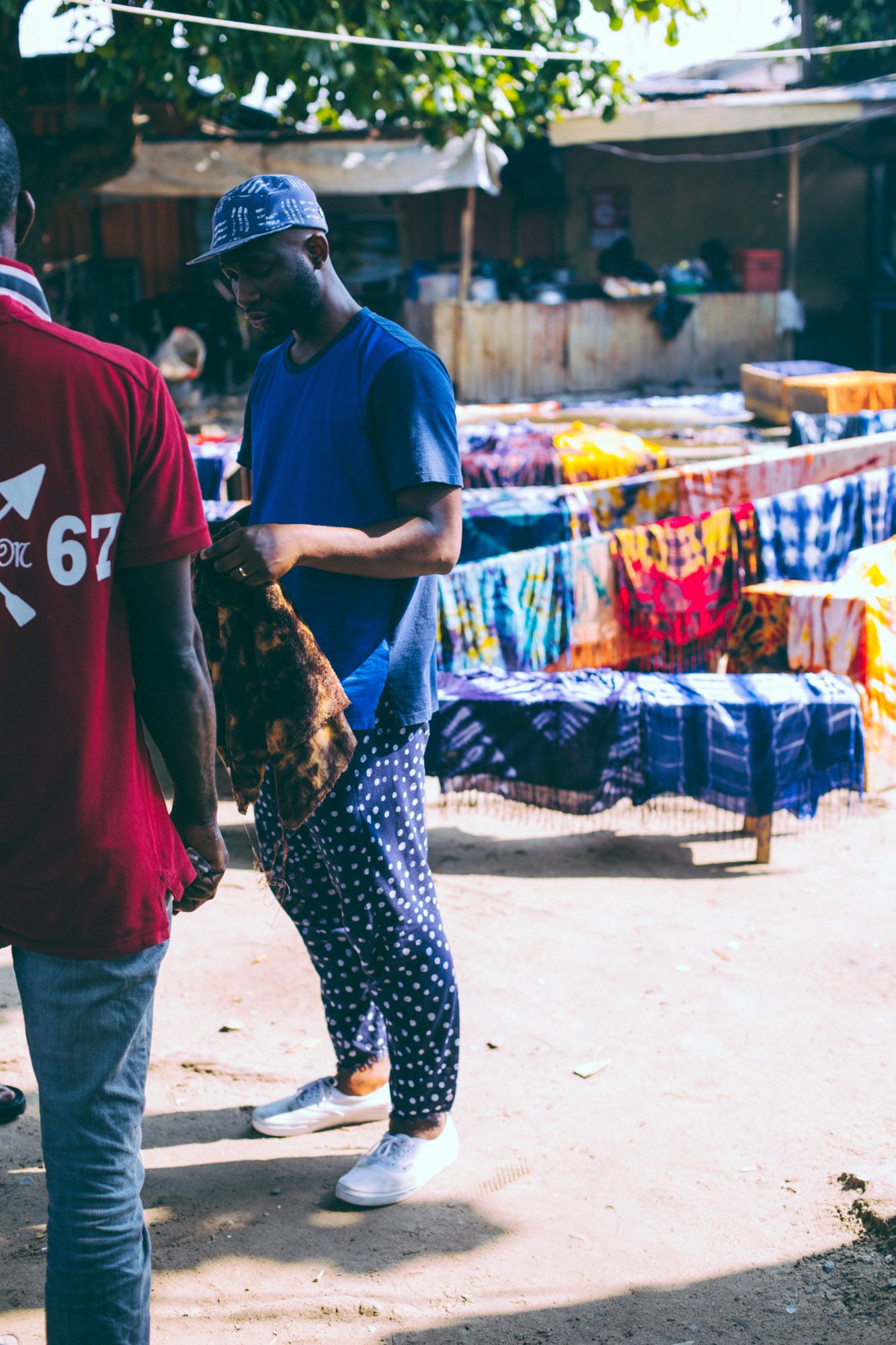
Niyi takes traditional adire motifs and riffs on them with the help of the dye artisans, adding his own touches in order to tell a new story with a traditional vocabulary.
“I see what I do as mythmaking, because mythmaking is a collaborative effort. Think about how myths start from an African perspective: an earthquake happens. Everyone is like, ‘What’s going on?’ And they go to the Griot and the Griot will come up with a story. Instead of focusing on different panels to tell that story, I just use one panel and expand on that story — I went into a deep dive and borrowed from the mythology to expand on top of it.”
In the same way that Post-Imperial appeals to customers in several ways — the purely aesthetic, the craftsmanship-loving and the cultural — its intellectual underpinnings and influences in Niyi’s mind are manifold. It is Nigerian, it is African, it is American and it is more than all of those things at once.
“I’m a big believer in multiple futures and multiple presents,” he says. “So in one timeline it’s purely African. And another timeline it’s purely Nigerian. And in another timeline it’s purely Black, in another timeline American. I grew up in America, so there’s a lot of things in there like hip hop. Even the suiting is very relaxed. Americans don’t like to wear anything too rigid like the British. There’s the Southern part of me too. My sense of color comes from Africa, but it also comes from the South too. So all those timelines at the same time.”
The name Post-Imperial itself began as a commentary on time:
“I was tired of seeing menswear fetishize nostalgia and the past. Why are we looking at old photos to create today? It wasn’t that people were using old photos to create something new — they just wanted to recreate that past. You know, that era was great – but great for who? When people look at Oriental pictures of colonial guys in suits it’s like, ‘Yeah, it was great for those guys.’ The context is lost because the picture looks beautiful. I didn’t like that. I wanted to make sure that I was making a product that resonates with the zeitgeist of today and tomorrow.”
Post-Imperial became Niyi’s vehicle for his mission to decolonize his perspective — something he realized was so ingrained that even the garments he loved like suits and ties were in some ways legacies of the British in Nigeria.
“I want to create a new Africana that is not reliant on the West or Western or white validation.” he says. “For example, when people talk about African design, it’s an exotic safari dream or it’s reduced to Dutch Wax, which is just a testament to colonialism. I’m dealing with 20-plus years of looking at things from a Western perspective even when I thought I was looking at it from an African perspective. And I’m dealing with my ancestors, my mom, my grandma, and they have colonized eyes as well. It’s going to take a while for me to remove those things.”
Post-Imperial’s greatest success has been in Japan, which Niyi credits to the Japanese love and respect for meticulous craftsmanship. He has tried to convince other African designers to build their brands in Japan, but finds the Eurocentric mindset of seeking validation in the West to be difficult to dislodge.
“Right now Europe does not care to hear from you,” he says. “But Japan is ready to hear. To buy from you and help you develop your business.”
The day before I spoke with Niyi, white and Black Democratic members of the House of Representatives had knelt with Kente cloth stoles around their necks to show solidarity with the Black Lives Matter movement. I asked him what he thought of the gesture as an African and a designer who works with traditional fabric styles.
“It was very performative,” he says, sighing. “I wish there was another way they could have shown solidarity. But I think we’re in a good place to talk about race now, because white people are very uncomfortable. It’s very difficult for them to understand what it means and how it feels and the impact of it, because they haven’t really had to deal with the issue. I have not wanted to hear from anyone but Black people on these issues, because for me right now, I feel solidarity with our brothers and our sisters and hearing their pain and sharing their joys, and for me, that’s where I want to be. And also figuring out what are the several black futures we can create? That’s where my head is at right now. One of the underlying issues with the Western colonial mindset is the solution-minded approach. Because solutions are very definitive and they want to end something. I’m sure you’re seeing all the ‘Ten steps to end racism,’ ‘Ten steps to be an ally.’ We’re trying to Ten Steps our way out of issues. You can’t end these things. You can just make them less. And how you do that is offering different alternatives that people can live.”
In one of the many alternative timelines of Post-Imperial, Japanese people are wearing British suits in American cuts made from Nigerian fabrics.
“I’ve deconstructed these things in a way that allows everyone to engage with them,” says Niyi. “We talk a lot about diversity, but the diversity we talk about is superficial. It doesn’t take into account the ways other people think, and it is diversity in the Western perspective. I know there’s another way to have a diversity of perspectives and values that you can look through. It makes us much richer, and we can actually start figuring out better ways to live.”
This article was featured in the InsideHook newsletter. Sign up now.
